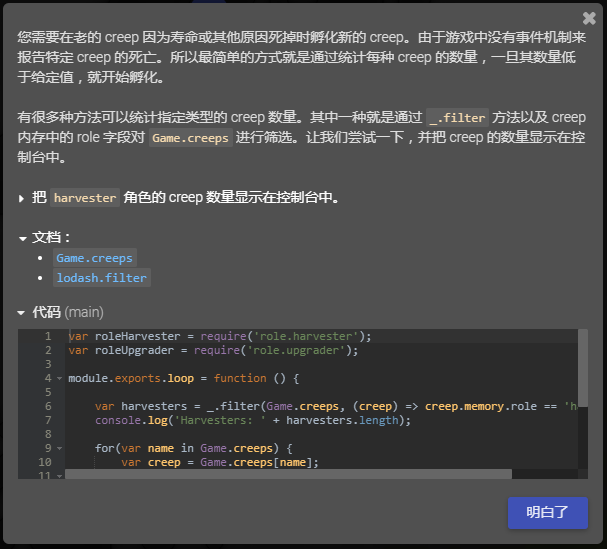
You can implement your own algorithm using RawMemory getter/setter. get ( ) ) //on the first access to Memory object //. In fact, the default work of the memory basically corresponds to the following code: Memory = JSON. It stores the original memory representation as a string. If you wish, you may write your own stringifier/destringifier using the global variable RawMemory. The CPU cost of this method execution is counted as your script expense. The Memory object is stored in the stringified form and is parsed each time upon the first in the tick access from your script with the help of the JSON.parse method. findClosestByRange (FIND_SOURCES ) Ĭreep. Instead of storing live objects, it is better to store the id property that any game object has, and then use Game.getObjectById to retrieve the game object by its id: // This is correct var source = creep. This is an incorrect example! var source = creep. Moreover, it will waste your memory which is limited. The Memory object is for storing JSON data and cannot contain live objects references. You should not store functions or full game objects as is in Memory. You can use the memory addressing method which is more convenient for you. Information is stored and recorded via the Memory object, but game objects just allow quick access to some corresponding keys. creeps ) Īctually, this property is an alias for a corresponding key in the global Memory object: Game. This object lets you access the complete list of your creeps, "review" rooms, pass commands, etc. If( !Game.getObjectById(_id).You operate the game through the global Game object which is described in detail in the API Reference section. find better worker and let him go to source Var nextCreeps = ('creep', nextPosition.x, nextPosition.y) Var nextPosition = nextTile(creep.pos, nextDirection) ToDo: allow creeps with better WORK go forward

& ) // creep on path :)Ĭonsole.log("creep " + creep.name + " lost path!") If(prev_i & path.x != path.x & path.y = path.y) For extremely large objects with repetitive data- such as CostMatrixes - compression can. Converting items like RoomPositions to a flat string before caching.

Objects are more expensive to parse than strings.

else if(path.x path.y ) path.direction=BOTTOM_LEFT Įlse if(path.x > path.x & path.y path.x & path.y path.y) path.direction=BOTTOM Be extremely careful what you cache in Memory, as the Memory parse time can be expensive. If (path.x > path.x & path.y > path.y) path.direction=BOTTOM_RIGHT Įlse if(path.x path.y ) path.direction=BOTTOM_LEFT Įlse if(path.x > path.x & path.y > path.y) path.direction=BOTTOM_RIGHT If(prev_i & path.x != path.x & path.y != path.y) exports = ( function ( ) ) įor(var i in path) // fix findPath (direction may be not correct, maybe bug)


 0 kommentar(er)
0 kommentar(er)
